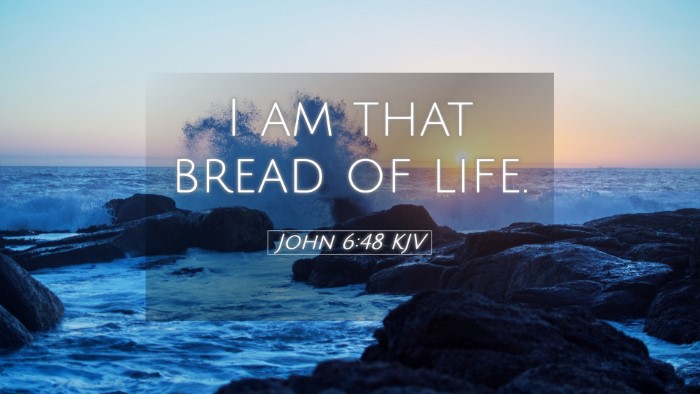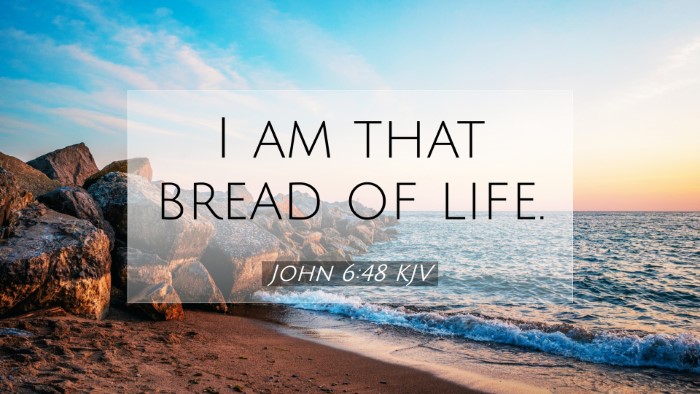Introduction
The declaration "I am that bread of life" is significant in the context of the teachings of Jesus. This profound statement illustrates the identity of Christ as the source of spiritual sustenance and fulfillment. It reflects the essential nature of spiritual nourishment that believers are to derive from Him. Below, we explore insights from public domain commentaries which elucidate the depth of this verse.
Contextual Analysis
The context of this passage is crucial for understanding its implications. Jesus speaks these words in the aftermath of the miraculous feeding of the 5,000, an event that established His authority and power. The crowd, having experienced physical hunger being satisfied, seeks Him out, prompting this discourse on the true nature of sustenance.
Matthew Henry notes that the feeding of the multitudes symbolizes a greater truth: that just as physical bread sustains life temporarily, Christ as the "bread of life" imparts eternal sustenance.
Spiritual Significance
The metaphor of bread is deeply entrenched in biblical tradition, representing life, sustenance, and the covenant relationship between God and His people. In this assertion, Jesus invites His followers to partake in a new understanding of sustenance—one that transcends mere physical needs.
- Albert Barnes emphasizes that this bread signifies spiritual nourishment that leads to eternal life—a life that is sustained not by earthly mechanisms but by divine grace.
- Adam Clarke further elaborates that the "bread of life" indicates that belief in Christ is paramount; without it, spiritual hunger remains unquenched.
Theological Implications
Jesus' declaration has significant theological implications for both individual believers and the church. It affirms the necessity of Christ at the center of the faith journey. By identifying Himself as the "bread of life," He positions faith in Him as essential for spiritual survival.
Matthew Henry points out that this phrase serves as an assurance that Christ meets all of our spiritual needs, similar to how bread nourishes and satisfies physical hunger.
Practical Application
Believers today are called to recognize that true satisfaction and sustenance come through a relationship with Christ. This relationship is cultivated through faith, prayer, and the Word of God.
- Reflection: Pastors and theologians should encourage congregants to evaluate their source of spiritual nourishment. Are they relying on Christ as the primary source, or are they seeking fulfillment in external, temporal things?
- Teaching: This verse serves as a pivotal point in teaching on the Eucharist or Communion, emphasizing that partaking in the body of Christ brings spiritual vitality.
Conclusion
The assertion "I am that bread of life" encapsulates the essence of Jesus' mission and the heart of Christian faith. It invites believers into a transformative experience of faith that promises eternal life and satisfaction in Him. As we reflect on this verse, may we continually seek to nourish our spiritual lives through Christ, recognizing Him as the ultimate sustenance for our souls.


